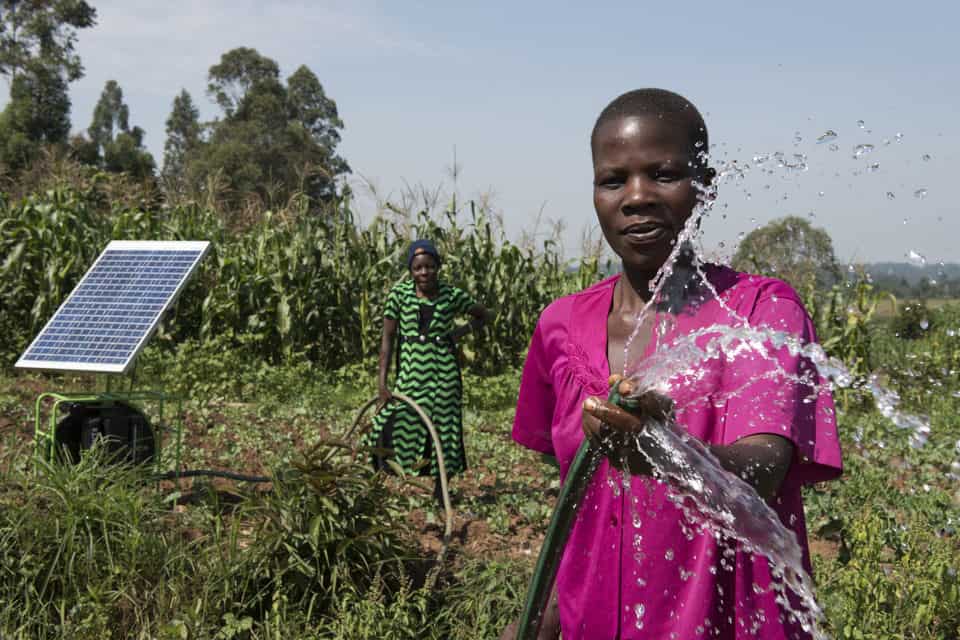Powering Business Award longlist: solar cold rooms, briquettes made from sugarcane waste, and much, much more.
For many developing world countries, agriculture is a key driver in helping to develop the economy and all five of the organisations in the running for the 2018 Ashden Award for Powering Business are playing their part to foster the use of clean energy in the sector.
Modernising the production process – for example through solar-powered agri-processing tools – increases productivity which in turn contributes to reducing poverty both nationally and at the individual household level.
SunCulture manufactures solar irrigation systems that make it cheaper and easier for farmers to grow higher quality crops and increase their yields by 300% or more. Smallholder farmer Robert Bunyi describes the difference it has made to his business: “My yield is now four times what it was before – I have too much to sell, which is a good problem to have! I never had that before. Plus, now I can employ people to work for me and take on contracts for continued supply to major companies.”
In Nigeria, ColdHubs have developed walk-in, solar-powered cold stations for 24 hour storage and preservation of fresh foods, and offer a flexible pay-as-you-store subscription model. In developing countries, 45% of food spoils mainly due to lack of cold storage which has a hugely detrimental impact on farmers’ potential income. Energy from solar panels mounted on the roof of the cold room are stored in high capacity batteries which feed an inverter which in turn feeds the refrigerating unit.
In India Ecozen are also specialising in portable solar cold rooms which have thermal energy storage and are designed to work even in low sunlight. The system temperature and humidity can be set according to the commodity stored inside. They calculate that in India alone, 10 million tons of cold storage capacity is required to prevent the over 30% wastage of perishable produce. The smaller farmers using the cold rooms usually break even after two years, and have seen as much as a 40% increase in their profits.
With their solar-powered flour mills, maize threshers and rice hullers, Agsol are enabling off-grid farmers to turn staple crops into higher value products. Their machines can be purchased on a Pay As You Go model and are helping to increase local labour efficiency and productivity. As well as opening up new business opportunities, the machines are keeping money within the community, thereby boosting village economies in far-flung places like Vanuatu and Papua New Guinea.
In Kenya and Tanzania, one organisation is successfully harnessing agri-waste to persuade big clients like Coca Cola to deploy cleaner production processes. Lean Energy Solutions use remnants of sugarcane, also known as bargasse, to power boilers in factories producing fast moving consumer goods. The bargasse is compacted to create flammable blocks or briquettes that are much cheaper to run and have a lower carbon footprint compared to diesel-fired boilers.
All of the organisations on our longlist are making a really significant contribution to the greening of the agriculture sector and it will be a close run thing as to who makes it through to the shortlist which we’ll be announcing in mid-March. Watch this space!

